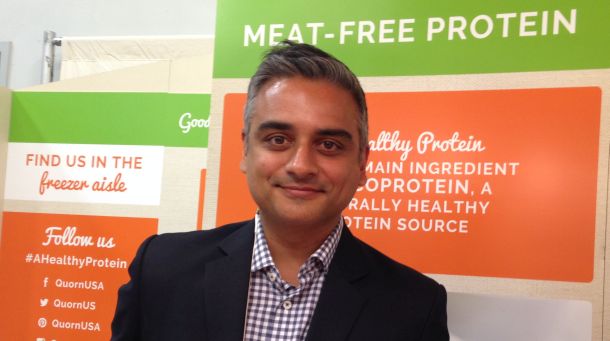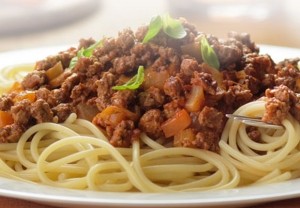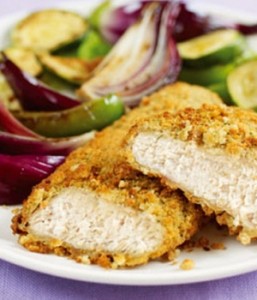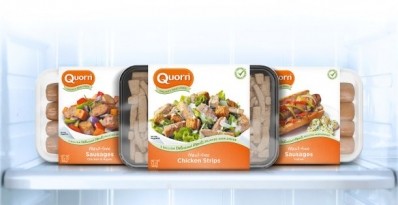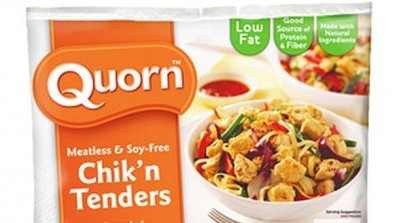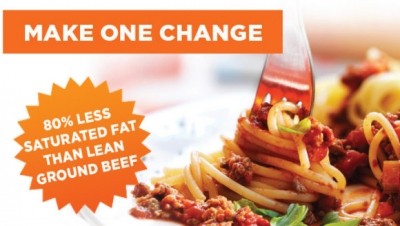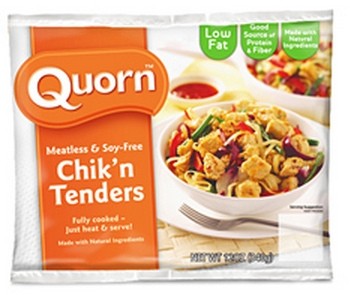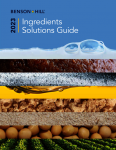Quorn 'categorically rejects' allegations in wrongful death lawsuit
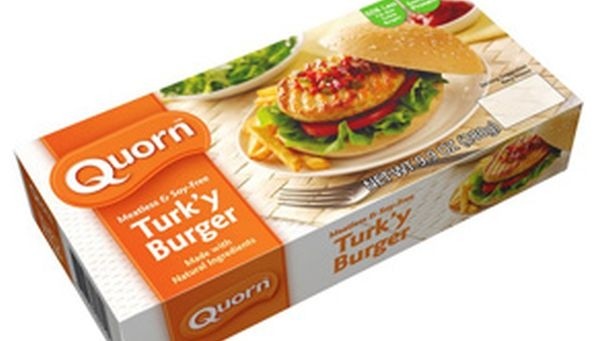
Made from an organism found occurring naturally in the soil in a field in Marlow, Buckinghamshire, UK (Fusarium venenatum strain PTA-2684) in the 1960s, Quorn is grown in the UK using a controlled fermentation process, and is described by the company on its website as "a member of the fungi/mold family".
Launched in the US in 2002 after the FDA issued its then-owner Marlow Foods with a letter of no objection to its GRAS (generally recognized as safe) notification, Quorn is now available in thousands of stores including Wegmans, Ahold, Walmart, Kroger and Target.
However, critics – notably the Center for Science in the Public Interest (CSPI) - have long argued that the FDA should revoke its GRAS status, or at the very least insist that Quorn products carry warning labels alerting consumers to the risk of a serious allergic reaction.
The word ‘mold’ was not listed on the label… although… fusarium venenatum is quintessentially a mold
The plaintiffs in the wrongful death lawsuit - filed in LA on March 24 - allege that although Quorn Foods labels its product as containing “mycoprotein”, it deliberately refrains from using the term “mold” on product labels, and by likening Quorn to mushrooms and truffles, “engaged in deliberate misbranding by means of misidentifying its food product”.
Miles Bengco - an “otherwise healthy and physically active boy” - was severely allergic to mold, and “within minutes of consuming the burger… went into respiratory distress and began using his nebulizer”, says the lawsuit.
While the emergency services were called, and his family administered an epi-pen while they waited for the ambulance, Bengco was pronounced dead later that evening, adds the complaint, which alleges design defects, failure to warn, and false and misleading advertising.
“Despite a review of the label, Miles’ mother, plaintiff Ann Marie Cote, had no clue that she had purchased highly processed mold…" says the complaint.
"The word ‘mold’ nowhere appeared in the above description [Quorn labels warn that Quorn is high in protein and fiber which ‘may cause intolerance in some people’ but do not use the world ‘mold’] although… fusarium venenatum is quintessentially a mold.”
After the lawsuit was filed, the CSPI immediately issued a statement calling on the FDA "to pull this dangerous meat substitute off of grocers’ shelves to prevent this innocently labeled product from causing more deaths".
CSPI: Quorn should carry a warning label
However, Quorn Foods said it "categorically rejects" the claim that its products were in any way associated with the tragedy, adding: "Since 1985, over three billion meals have been sold – with no associated fatalities."
In a statement sent to FoodNavigator-USA, the firm said:
"The people at Quorn Foods join families everywhere in expressing our deepest sympathy over the tragic passing of Miles Bengco in June 2013. However, we categorically reject the claims made by the Bengco family that our products were in any way associated with this tragic event."
It added: "We were first was made aware of the death nearly two years ago, in July of 2013. Since that time, we have worked with the family and their counsel to better understand the details of what transpired.
"Although we are not able to comment on many of the details of the lawsuit at this point, the attempt to blame the child’s death on his ingestion of mycoprotein, Quorn’s key ingredient, is inaccurate and unsubstantiated."
We will vigorously defend our company and the safety of our products against these allegations
The lawsuit also "omits or actively attempts to downplay" several critical facts, it added:
• The L.A. County Medical Examiner concluded, after a lengthy investigation, that Miles died from an asthma attack.
• According to the Autopsy Report, Miles suffered from 'poorly-controlled' asthma so severe that it caused him to be hospitalized on at least ten separate occasions throughout his young life—all prior to the attack that wound up claiming his life.
• Miles required several asthma-maintenance medications to keep his condition reasonably under control. But notwithstanding the seriousness of Miles’ condition, according to the Autopsy Report, the child’s family ceased giving him any medication one month prior to his death, and placed him on an 'organic diet' in lieu of medicine."
The company added: "With the help of third-party scientific and medical experts, Quorn Foods has consistently undertaken genuine, critical assessments of our products and any consumer issues that arise. Likewise, we have taken a nearly two-year, hard and honest look at the claims made here.
"We sympathize with the Bengco family and the tragic loss that they have endured, but their attempt to ameliorate this tragedy by way of a lawsuit against Quorn Foods is misguided. We will vigorously defend our company and the safety of our products against these allegations."
Quorn mycoprotein is not classified as an allergen in the U.S. or the 14 other countries where it is currently sold
Speaking to FoodNavigator-USA last year, Quorn Foods USA general manager Sanjay Panchal said that while a certain proportion of consumers may have an intolerance to almost any protein or fiber, “claims that Quorn is an unsafe product have been proven inaccurate and lack scientific credibility.”
He added: "Quorn Foods takes all customer concerns seriously, and investigates them thoroughly. Our food meets stringent safety standards of food safety regulatory agencies worldwide, including Health Canada, Food Standards Australia New Zealand and the Food Standards Agency in the UK, as well as the FDA. We voluntarily and extensively test our products, and have for decades, to ensure the safety of our customers.
"Quorn’s main ingredient - mycoprotein - is not classified as an allergen in the U.S. or the 14 other countries where it is currently sold."
Quorn senior advisor David Wilson added: "In the last five years, the annual intolerance complaint rate is less than 1 per million servings of Quorn product. This compares extremely favorably with soy and wheat with an incidence of about 1 in 200 of the general population and with egg and milk in the range of approximately 1 in 100.
"All Quorn complaint data is regularly shared with the FDA and other food regulators, who support that Quorn is a safe and well-tolerated product."
In a letter to Marlow Foods written in January 2002, the FDA says the company had submitted several human studies showing that "mycoprotein is well-tolerated", with the adverse reactions of a "primarily gastrointestinal" nature.
On its website, Quorn notes that "Mycoprotein is high in protein and fiber which may cause intolerance in some people," but adds that the UK Food Standards Agency "states that research estimates that between 1 in 100,000 to 200,000 people will react to it”.
Health Canada accepted mycoprotein as safe and approved it for sale
Asked about more recent research, Wilson added: "Marlow Foods convened an expert panel in 2011 to review all complaints and published data.The panel again concluded that Quorn mycoprotein is a safe and well tolerated food. Finally, and most recently, a submission of all food safety data was made to Health Canada in 2013 who after review accepted mycoprotein as safe and approved it for sale."
A 2009 class action lawsuit filed by the CSPI in Connecticut accusing Quorn Foods of failing to alert consumers to the risk of allergic reactions on labels was dismissed in May 2011 on “what we feel are wholly incorrect legal grounds”, then CSPI litigation director Steve Gardner told FoodNavigator-USA at the time.
What is Quorn?
Quorn mycoprotein is produced on a commercial scale in large tanks using a continuous fermentation process fed with glucose, vitamins and minerals before being heat treated. When it is extracted, flavorings are added along with egg white for binding so it can be shaped into nuggets, tenders and cutlets.
While it’s "from the fungus family", it’s not a mushroom, said Panchal, who said growing protein in big vats is more sustainable than raising animals.
"Quorn is a single cell micro-organism, a mycoprotein from the fungus family, produced using a fermentation process very similar to brewing; only we're interested in the solids as opposed to the liquid.
"So if you can wrap your head around yeast, beer or yogurt [which are also manufactured via a fermentation process], you can understand Quorn," he added. "We’re really proud of what we do.”
The case is Paras Bengco and Ann Marie Cote vs Quorn Foods, Inc., Sprouts Farmers Markets LLC, Sunflower farmers Markets LLC and Howell Mountain Distributors. The plaintiffs are represented by law firms Becker Law Group, and McNicholas & McNicholas LLP.
